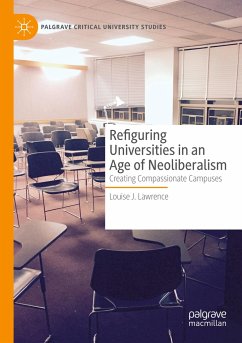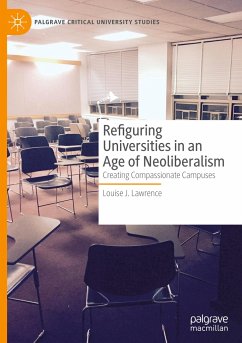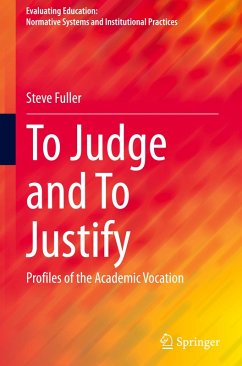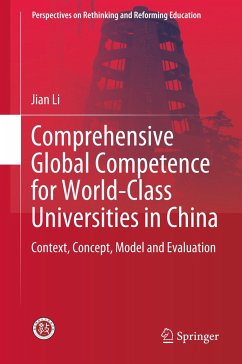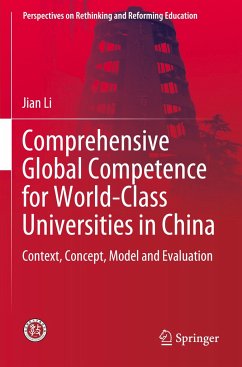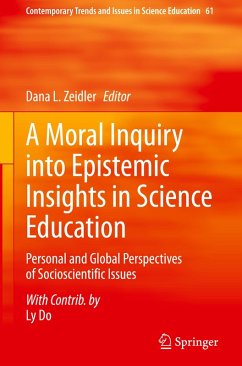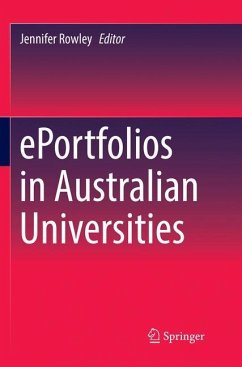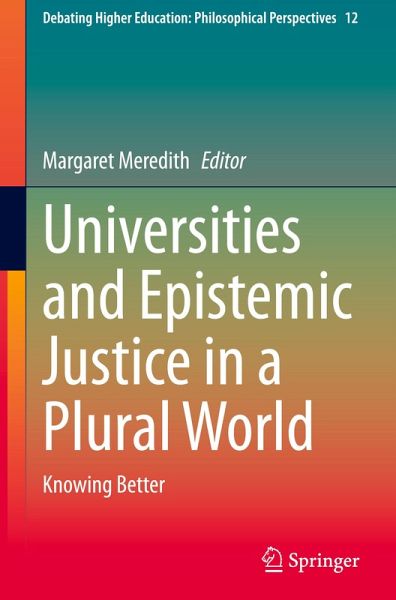
Universities and Epistemic Justice in a Plural World
Knowing Better
Herausgegeben: Meredith, Margaret

PAYBACK Punkte
54 °P sammeln!
This book explains why universities, and academics within them, must engage with the diversity of knowledges and knowers that exist in the world. Through philosophical perspectives, theoretical frameworks and practical examples from around the world, the book searches for opportunities for renewal and inclusion in universities. It explains how higher education can better serve the purposes of social justice by re-evaluating the types of knowledge it promotes. Going beyond the identification and analysis of injustices in ways of knowing in academia, the book offers insights and examples of prac...
This book explains why universities, and academics within them, must engage with the diversity of knowledges and knowers that exist in the world. Through philosophical perspectives, theoretical frameworks and practical examples from around the world, the book searches for opportunities for renewal and inclusion in universities. It explains how higher education can better serve the purposes of social justice by re-evaluating the types of knowledge it promotes. Going beyond the identification and analysis of injustices in ways of knowing in academia, the book offers insights and examples of practices in teaching, research and work with the community which aim to move towards justice on an epistemic level. It argues that inclusion in the domain of knowledge can lead to the generation of knowledges and understandings that are more robust and better equipped to address the pressing needs of the plural worlds outside the university.
Contributions are included from authors working in varied disciplinary and cultural contexts in universities, who describe and explicate their work towards identifying epistemic injustice and finding spaces to advance knowledge justice in theory and in practice. The book will be beneficial to academics and those with an interest in the role of universities in serving the public good.
Contributions are included from authors working in varied disciplinary and cultural contexts in universities, who describe and explicate their work towards identifying epistemic injustice and finding spaces to advance knowledge justice in theory and in practice. The book will be beneficial to academics and those with an interest in the role of universities in serving the public good.






